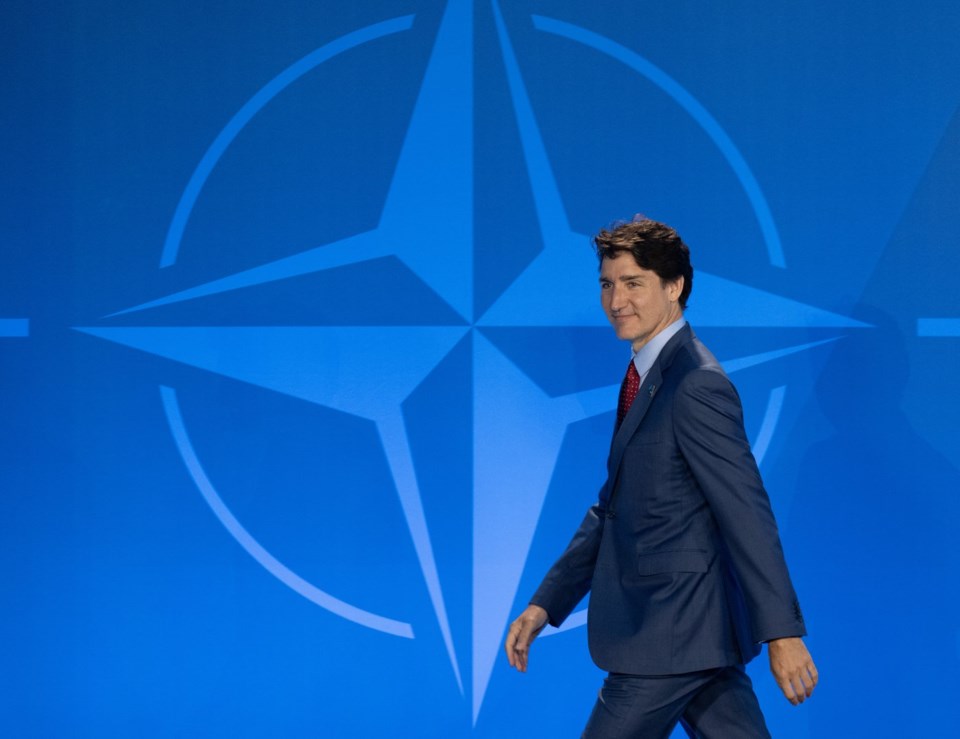OTTAWA — Canada has signed a trilateral agreement with Finland and the U.S. to boost the production of icebreakers in an effort to safeguard the Arctic and Antarctic regions.
The "ICE Pact," as it's being called, is aimed at bolstering shipbuilding capabilities in the three countries to deter Russian and Chinese ambitions in the Far North.
An implementation plan will be developed in the next six months, the Prime Minister's Office said.
"In the Arctic, new, faster shipping lanes hold the potential to create new economic opportunities and drive down shipping costs. And in the Antarctic, our partnership can also foster increased scientific research and international collaboration," the PMO said in a statement Thursday.
The deal was signed on the sidelines of the NATO summit, which is wrapping up Thursday in Washington, D.C.
Finland is one of NATO's newest members, joining officially in April 2023, a year before Sweden. The addition of the two Nordic nations means that NATO now includes all Arctic countries except Russia, and the region has taken on new importance in the alliance.
The 32 allies said in their joint statement at this year's summit that Russia "remains the most significant and direct threat to allies’ security."
On Wednesday, defence ministers from Canada, Sweden, Finland, Norway and Iceland took part in a panel discussion about Nordic security at the summit.
Canadian Defence Minister Bill Blair noted that with climate change accelerating in the North, experts believe the Arctic Ocean could be the primary transit route between Europe and Asia by 2050.
"As it becomes more accessible, security concerns become I think far more significant to us," he said, noting there are currently "huge gaps" in both security and presence in the North American Arctic.
"We have now got a united NATO presence from Russia's eastern shore to their western shore," Blair said.
China, which calls itself a "near-Arctic" nation, has signed a memorandum of understanding with Russia to work together in the Arctic and has started building icebreakers of its own. The two countries have been conducting naval patrols in the Bering Sea in recent years.
Senior U.S. officials who spoke to reporters about the deal said they anticipate allies will want to build between 70 and 90 icebreakers in the coming years and they want domestic shipyards to gain from that production.
The White House said allies will be invited to buy icebreakers from American, Canadian or Finnish shipyards. Expertise will be shared among the three countries by having skilled workers train in other shipyards.
Canada's national shipbuilding plan includes two new polar icebreakers, including one being built in Vancouver by Seaspan and one being built in Quebec by Chantier Davie, and a fleet of six program icebreakers by Davie.
Davie, which also has a facility in Finland, said in a statement that it is planning to take part in the pact. It said its Helsinki shipyard has built more than half the world's icebreaker fleet.
The U.S Coast Guard is building new heavy icebreakers out of a Louisiana-based shipyard, the first American-built ships of their kind in more than 50 years.
This report by The Canadian Press was first published July 11, 2024.
Sarah Ritchie, The Canadian Press




